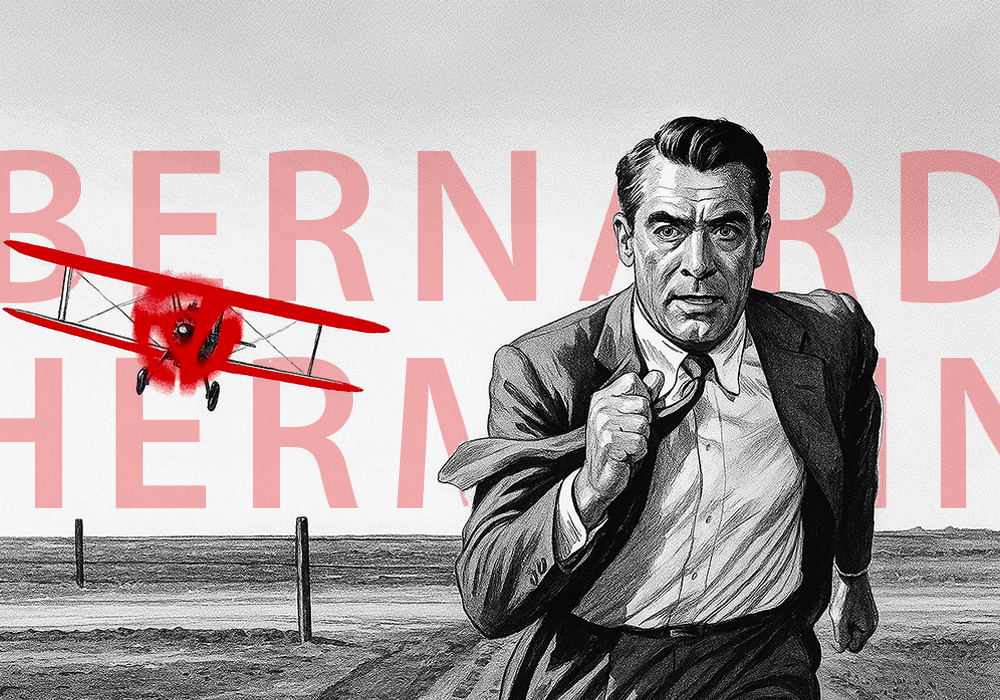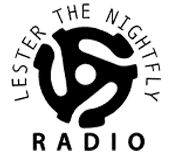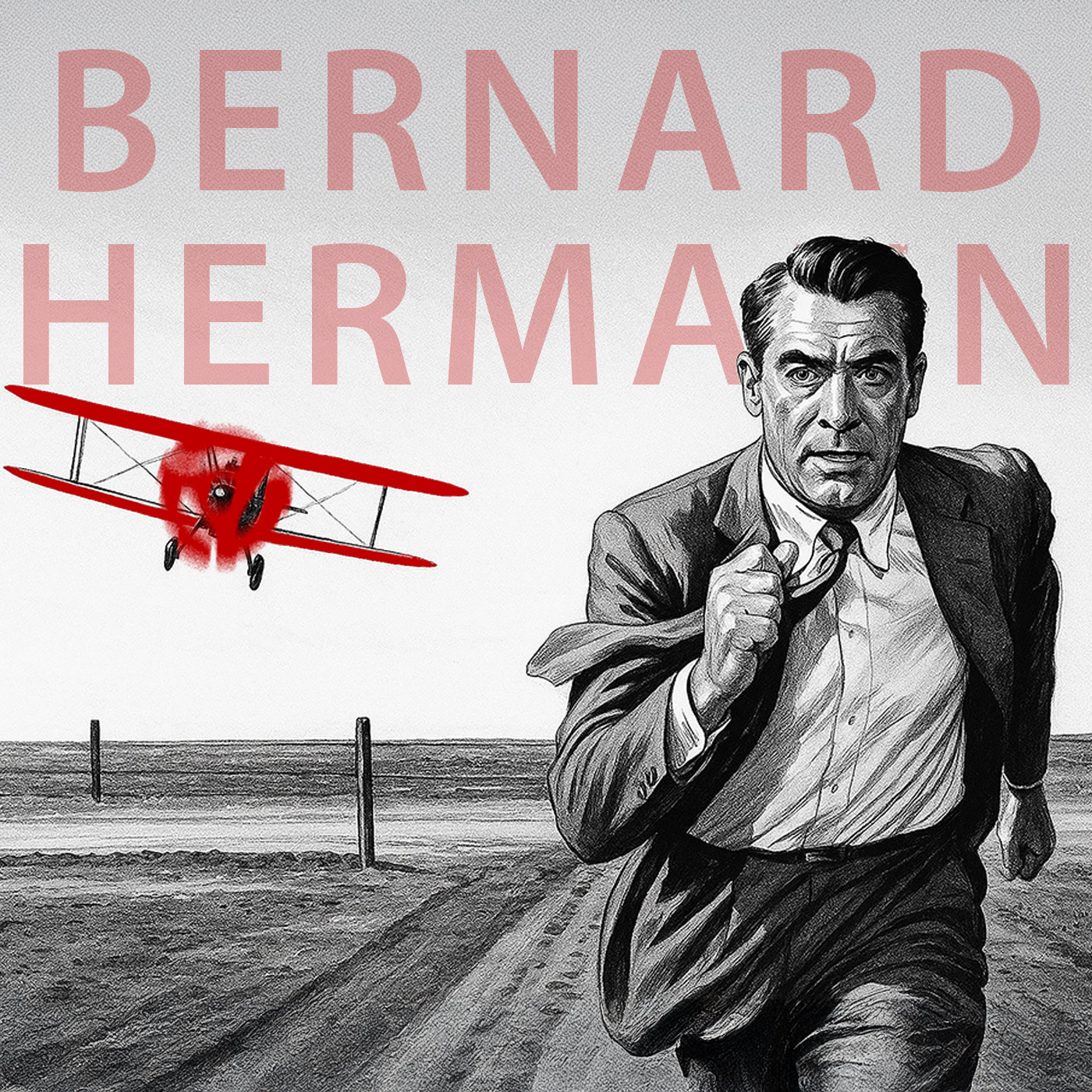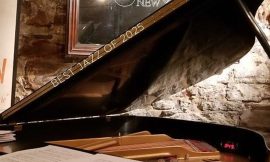BERNARD HERMANN SOUNDTRACKS (S5 | E239)
This is simply a product of the media landscape in the end… and maybe a testament to how easily led I just might be. I see a biopic on Alfred Hitchcock on Netflix, and suddenly I am in the middle of a private Hitch Fest here in lower Manhattan. And now a deeply researched look at Bernard Hermann with a side order of Franz Waxman. It’s movie music this week on Lester the Nightfly Radio. And it’s about time too,
BERNARD HERMANN
Bernard Herrmann was a towering figure in 20th-century American music, celebrated primarily for his groundbreaking and highly distinctive film scores. Born in 1911, he cultivated a unique musical voice characterized by bold orchestrations, often unconventional instrumentation, and a profound ability to evoke psychological depth and dramatic tension through sound. After a significant career in radio, including his iconic collaboration with Orson Welles on “The War of the Worlds” broadcast, Herrmann made his cinematic debut with Welles’s Citizen Kane (1941), instantly cementing his reputation. He is, however, most indelibly linked to his transformative partnership with Alfred Hitchcock, composing the iconic scores for Vertigo, North by Northwest, and the revolutionary all-strings score for Psycho. His innovative approach, which frequently prioritized mood and atmosphere over traditional melodies and even sometimes employed silence, profoundly influenced generations of film composers, leaving behind a legacy of music that is as integral to the films it accompanies as the images themselves, culminating in his final, chilling score for Martin Scorsese’s Taxi Driver.
BERNARD HERMANN SOUNDTRACKS (S5 | E239)
| Track Name | Album Name | Artist Name(s) | Release Date | Record Label |
|---|---|---|---|---|
| Overture (Main Title) | North By Northwest (Original Motion Picture Soundtrack) | Bernard Herrmann | 9/26/59 | WaterTower Music |
| The U.N. / Information Desk | North By Northwest (Original Motion Picture Soundtrack) | Bernard Herrmann | 9/26/59 | WaterTower Music |
| The Airport | North By Northwest (Original Motion Picture Soundtrack) | Bernard Herrmann | 9/26/59 | WaterTower Music |
| The House | North By Northwest (Original Motion Picture Soundtrack) | Bernard Herrmann | 9/26/59 | WaterTower Music |
| The Gates / The Stone Faces / The Ridge / On the Rocks / The Cliff / Finale | North By Northwest (Original Motion Picture Soundtrack) | Bernard Herrmann | 9/26/59 | WaterTower Music |
| Prelude And Rooftop – From Vertigo | Vertigo (Original Motion Picture Soundtrack) | Bernard Herrmann | 1/1/96 | Varese Sarabande |
| Carlotta’s Portrait | Vertigo (Original Motion Picture Soundtrack) | Bernard Herrmann | 1/1/96 | Varese Sarabande |
| The Streets | Vertigo (Original Motion Picture Soundtrack) | Bernard Herrmann | 1/1/96 | Varese Sarabande |
| The Past And The Girl | Vertigo (Original Motion Picture Soundtrack) | Bernard Herrmann | 1/1/96 | Varese Sarabande |
| Rear Window Main Title – Original Soundtrack Theme from Rear Window | Rear Window Main Title (Original Soundtrack Theme from Rear Window) | Franz Waxman | 6/28/13 | JB Production CH |
| Lisa – From Rear Window | Psycho: The Essential Alfred Hitchcock Collection | Franz Waxman,The City of Prague Philharmonic Orchestra,Paul Bateman | 1/1/99 | Decca (UMO) (Classics) |
| Rear Window Suite: I. Prelude | Music for Alfred Hitchcock | Franz Waxman,Danish National Symphony Orchestra,John Mauceri | 8/5/14 | Toccata Classics |
| Rear Window Suite: II. Lisa – Intermezzo | Music for Alfred Hitchcock | Franz Waxman,Danish National Symphony Orchestra,John Mauceri | 8/5/14 | Toccata Classics |
| Prelude | Psycho (The Complete Original Motion Picture Score) | Bernard Herrmann | 1/1/97 | Varese Sarabande |
| The City | Psycho (The Complete Original Motion Picture Score) | Bernard Herrmann | 1/1/97 | Varese Sarabande |
| The Murder | Psycho (The Complete Original Motion Picture Score) | Bernard Herrmann | 1/1/97 | Varese Sarabande |
| The Murder | Psycho (The Complete Original Motion Picture Score) | Bernard Herrmann | 1/1/97 | Varese Sarabande |
| Prelude | Mysterious Island (The Complete Bernard Herrmann Score) | Moscow Symphony Orchestra conducted by William Stromberg | 2007 | Tribute Film Classics |
| Introductions | Mysterious Island (The Complete Bernard Herrmann Score) | Moscow Symphony Orchestra conducted by William Stromberg | 2007 | Tribute Film Classics |
| The Clouds A | Mysterious Island (The Complete Bernard Herrmann Score) | Moscow Symphony Orchestra conducted by William Stromberg | 2007 | Tribute Film Classics |
| The Clouds E | Mysterious Island (The Complete Bernard Herrmann Score) | Moscow Symphony Orchestra conducted by William Stromberg | 2007 | Tribute Film Classics |
| Overture | The Trouble With Harry (Original Motion Picture Soundtrack) | Bernard Herrmann | 1/1/98 | Varese Sarabande |
| Jennifer | The Trouble With Harry (Original Motion Picture Soundtrack) | Bernard Herrmann | 1/1/98 | Varese Sarabande |
| Rope | The Classic Soundtrack Collection | Alfred Hitchcock | 9/7/18 | CHROME DREAMS |
NORTH BY NORTHWEST
Bernard Herrmann’s score for Alfred Hitchcock’s 1959 espionage thriller North by Northwest is a propulsive and highly energetic work, famously opening with a vibrant and restless “Fandango” that perfectly embodies the film’s theme of mistaken identity and relentless pursuit. Unlike some of his more overtly psychological scores, Herrmann here opts for a more overtly exciting and kinetic sound, employing sharp orchestral accents, syncopated rhythms (often in a driving 6/8 time), and a sense of constant forward momentum to mirror the plot’s rapid shifts and Roger Thornhill’s harrowing journey. While it features moments of romantic longing for the developing relationship between Thornhill and Eve Kendall, the score’s dominant character is one of thrilling suspense, effectively building tension through its unique blend of brass fanfares, percussive flourishes, and string ostinatos, yet notably absent in iconic scenes like the crop-duster attack, where silence amplifies the sense of exposed vulnerability.

VERTIGO
Bernard Herrmann’s iconic score for Alfred Hitchcock’s Vertigo is widely considered one of the greatest film scores ever composed, a masterclass in psychological music that perfectly mirrors the film’s themes of obsession, delusion, and spiraling madness. Released in 1958, the soundtrack is characterized by swirling strings, ominous brass, and disorienting arpeggios that evoke Scottie Ferguson’s acrophobia and mental breakdown, notably in the “Prelude and Rooftop” and “The Nightmare” cues. The hauntingly romantic “Scène d’amour” (Love Scene) stands out, directly referencing Richard Wagner’s Tristan und Isolde to underscore the tragic and obsessive nature of Scottie’s love for Madeleine/Judy. Herrmann’s unique approach to film scoring, deeply integrated with Hitchcock’s visuals, makes the Vertigo soundtrack an indispensable component of the film’s lasting power and a landmark in cinematic music.
REAR WINDOW
Unlike Bernard Herrmann’s sweeping, psychological scores for films like Vertigo, the soundtrack for Alfred Hitchcock’s 1954 classic Rear Window, composed by Franz Waxman, is notable for its innovative and largely diegetic approach. Instead of a traditional orchestral score providing continuous underscoring, much of the music we hear emanates organically from the various apartments visible from L.B. Jeffries’ window, creating a vivid tapestry of urban life. This includes snippets of popular songs like “That’s Amore” and “Mona Lisa,” jazz numbers, and classical pieces, all contributing to the distinct personalities and narratives of the neighbors. A central element is the recurring song “Lisa,” a romantic ballad supposedly composed by the musician across the courtyard, which evolves throughout the film and subtly reflects the burgeoning relationship between Jeff (James Stewart) and Lisa (Grace Kelly), as well as offering a poignant counterpoint to the isolation of “Miss Lonelyhearts.” This unique use of source music makes the soundtrack an integral part of the film’s voyeuristic theme and its immersive setting.
PSYCHO
Bernard Herrmann’s score for Alfred Hitchcock’s Psycho (1960) is a revolutionary and minimalist masterpiece, famously utilizing only the string section of the orchestra to create an almost monochromatic “black and white” sound world that perfectly complements the film’s stark visuals. Despite Hitchcock’s initial suggestion for no music during the iconic shower scene, Herrmann’s screeching, dissonant strings, often described as “knives of sound,” became one of cinema’s most instantly recognizable and terrifying musical cues, forever imprinting itself on the audience’s psyche. Beyond this pivotal moment, the score weaves a pervasive sense of dread and unease through its unsettling leitmotifs, repetitive ostinatos, and atonal passages, effectively amplifying the psychological torment and fractured identity at the heart of the film, making it a foundational influence on countless horror scores that followed.
THE MYSTERIOUS ISLAND
Bernard Herrmann, renowned for his collaborations with Alfred Hitchcock, also composed the vibrant and imaginative score for the 1961 Ray Harryhausen stop-motion adventure film, The Mysterious Island. In this score, Herrmann embraced the fantastical elements of Jules Verne’s story, creating a soundscape that is both grand and subtly menacing. He employed a larger orchestral palette than in some of his more intimate suspense scores, with particular emphasis on brass and percussion to depict the island’s strange creatures and perilous landscapes, such as the formidable giant crab and the menacing bee. Yet, he also infused the score with moments of wonder and lush lyricism, capturing the beauty of the uncharted island and the human resilience of the marooned adventurers, making it a standout example of his versatility in the fantasy genre
Thank you thank you stations we love!
WHO’S ON OUR PLAYLIST
AND THE BONUS — FRANZ WAXMAN
Franz Waxman was a prolific and influential German-American composer and conductor, best known for his significant contributions to Hollywood’s Golden Age of film music. Born in 1906, he initially supported his musical studies by playing piano in nightclubs before establishing himself in the German film industry, notably orchestrating and conducting the score for The Blue Angel (1930). Following a severe beating by Nazi sympathizers, he emigrated to Hollywood in 1934, quickly making his mark with his first American score for The Bride of Frankenstein (1935), which set a new standard for horror film music. Waxman’s diverse output encompassed over 150 film scores, including the critically acclaimed Rebecca (1940), Rear Window (1954), and his two consecutive Academy Award-winning scores for Sunset Boulevard (1950) and A Place in the Sun (1951). His style was characterized by a fluent, highly Romantic approach, a gift for melodic writing, and an innovative integration of sophisticated musical techniques, often prioritizing orchestral color and expressive variations of easily recognizable themes. Beyond film, Waxman was also an accomplished concert composer and conductor, founding the Los Angeles International Music Festival in 1947, where he championed both established and contemporary classical works.






